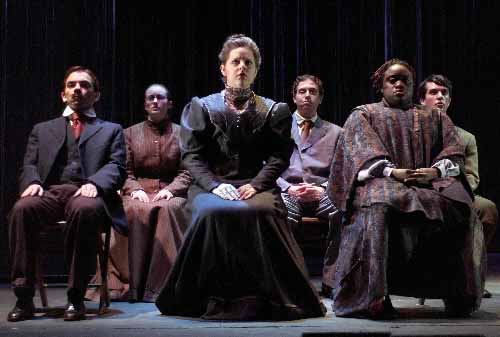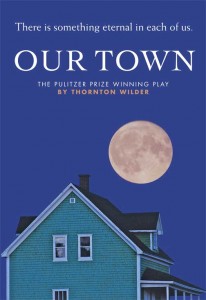EMILY: Does anyone ever realize life while they live it…every, every minute?
STAGE MANAGER: No. Saints and poets maybe…they do some.
— Our Town
Last semester, I introduced my Lebanese, Syrian and Palestinian students in Beirut to Our Town by Thornton Wilder. Though this classic American play takes place in a fictional New Hampshire town at the turn of the 20th century, my students had no problem relating to its main themes: love, impermanence, compassion, and social (in)justice. There’s a reason why Our Town is performed once every night somewhere in the world.
BELLIGERENT MAN: Is there no one in town aware of social injustice and industrial inequality?
MR. WEBB: Oh yes, everybody is–somethin’ terrible. Seems like they spend most of their time talking about who’s rich and who’s poor.
BELLIGERENT MAN: Then why don’t they do something about it?
— Our Town
Today marks the anniversary of the premiere of Our Town in 1938 at the McCarter Theatre in Princeton, New Jersey. Due to its radical structure and stinging social commentary, the play was revolutionary–especially because it dispensed with scenery and props. In its earliest performances, Our Town was a total flop. Later, however, the play landed a Broadway production and Pulitzer Prize…
Yes, now you know. Now you know! That’s what it was to be alive. To move about in a cloud of ignorance; to go up and down trampling on the feelings of those about you. To spend and waste time as though you had a million years. To be always at the mercy of one self-centered passion, or another. Now you know — that’s the happy existence you wanted to go back to. Ignorance and blindness.”
― Simon Stimson, Our Town
One of the reasons why Our Town has long been one of my favorite plays is because Thornton Wilder, who spent his formative years in Shanghai, borrowed heavily from the techniques, style, and staging of Chinese opera to create this brutal and unflinching drama. Our Town–far from its sentimental stereotype–was created as a radical and experimental hybrid of theatrical styles and philosophies from the “east” and from the “west.”
In the monologue that transitions from the second act to the tear-inducing third act in the cemetery (spoiler alert!), the Stage Manager (played by Paul Newman below) discusses what’s “eternal” in all of us–what people “have been telling us for 5,000 years.”

